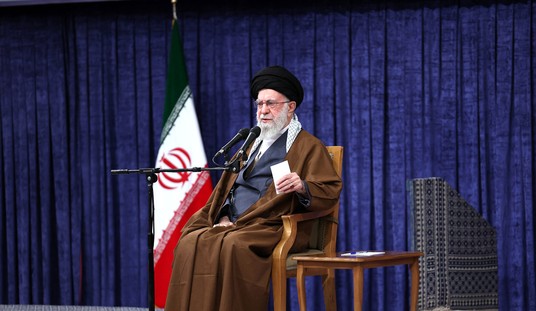The Dallas Morning News is against voter ID laws. It makes that plain in this editorial, and then relies on a “study” to make its faulty case.
The new research asserts that the tougher laws are part of a GOP strategy aimed at keeping minority and low-income voters away from the polls, despite the fact that widespread voter impersonation is virtually nonexistent.
Research from University of Massachusetts at Boston sociologist Keith Bentele and political scientist Erin O’Brien shows a correlation between restrictive new voting laws and states where Republicans control the legislature or governor’s office.
In fact, the ties are so compelling that the researchers conclude that photo identification, proof of citizenship, tighter voter registration drives, shorter early voting periods, repeal of same-day voter registration and other new voter ID laws “collectively reduce electoral access among the socially marginalized.”
Restricting access to the ballot box is a dangerously slippery legal slope, which is why these measures have generated several lawsuits against Texas and other states.
First, let’s look at those lawsuits. They’re coming mainly from the Department of Justice, which is run by the sharply partisan Eric Holder and his just-as-sharply-partisan boss, Barack Obama. The Morning News neglects to mention this fact. This administration is currently waging lawfare against nuns to force them to support abortion and birth control in violation of their religious consciences. Its use of courts to impose its will and reward its political allies must be taken into account when assessing the worthiness of the legal warfare it wages.
The sociologist and political scientist who conducted the study which the Morning News cites compare voter ID requirements to blatantly racist Jim Crow laws. They put that noxious and emotionally charged comparison into the very title of their paper on the subject. Did they use real voting numbers, before and after voter ID laws have been enacted, to arrive at their conclusions?
No. They admit in their abstract that they started with the premise that voter ID laws are racially motivated, and worked backward from that conclusion.
In an effort to bring empirical clarity and epistemological standards to what has been a deeply-charged, partisan, and frequently anecdotal debate, we use multiple specialized regression approaches to examine factors associated with both the proposal and adoption of restrictive voter access legislation from 2006–2011. Our results indicate that proposal and passage are highly partisan, strategic, and racialized affairs. These findings are consistent with a scenario in which the targeted demobilization of minority voters and African Americans is a central driver of recent legislative developments. We discuss the implications of these results for current partisan and legal debates regarding voter restrictions and our understanding of the conditions incentivizing modern suppression efforts. Further, we situate these policies within developments in social welfare and criminal justice policy that collectively reduce electoral access among the socially marginalized.
Rather than relying on a politically motivated academic study, the Dallas Morning News would better serve its readers if it took the time to look at what actually happened in Texas before and after voter ID took effect. Surely the largest newspaper in Dallas has the resources to dig up numbers on the Texas secretary of state’s website?
The state legislature passed voter ID into law in 2011. The law did not take effect that year, but was in effect during the 2013 elections.
Unlike the Dallas Morning News, I actually looked at vote totals going back a decade and then across the voter ID threshold in 2013. The numbers don’t lie.
According to the Texas secretary of state’s office, 10 amendments were up for vote in 2011, the last constitutional amendment election before the voter ID law passed. Some issues received more votes than others. The one most voted on received 690,052 votes, for and against. Overall, an average of about 672,874 Texans voted on these 10 constitutional amendments.
If voter ID suppressed votes, we should see a drop in turnout, right? Well, according to the Texas secretary of state’s office, nine amendments went up for vote in 2013. The amendment that attracted the most votes, Proposition One, attracted 1,144,844. The average number of votes cast in 2013 was 1,099,670.
So, in terms of raw votes, turnout in 2013 increased by about 63% over turnout in 2011 in comparable elections. But that’s statewide. How about in areas the anti-voter ID side predicted should see “suppression”?
Turnout for the 2011 election was 5.37% of registered voters; for 2013 it was about 8%.
That’s from the piece I wrote on voter ID for CNN, a piece that went through several days of rigorous editorial back and forth before CNN.com published it.
So that’s overall turnout. How about turnout in those areas that the academics claim voter ID laws are intended to depress turnout?
Hidalgo County sits on the Texas-Mexico border and is 90% Hispanic. In 2011, an average of just over 4,000 voted in the constitutional amendment election. In 2013, an average of over 16,000 voted.
If voter ID was intended to suppress votes, it is failing as spectacularly as HealthCare.gov.
Look at Cameron County, which is about 85% Hispanic. Turnout increased from an average of 4,700 votes in 2011 to 5,100 in 2013.
The data are clear and unambiguous: Voter ID laws did not depress turnout at all. On the contrary, to the extent that voter ID impacted turnout at all, it can be argued that voter ID had a positive impact. I am not asserting that as fact, just noting that it can be argued, based on the numbers, not the reverse-engineering done by partisan academics.
The Dallas Morning News’ editorial misleads its readers, intentionally substituting a backward political analysis for hard, empirical data on voter ID. It should retract that editorial and apologize to its readers for its incompetence or its dishonesty — or both, which is most likely the case.









Join the conversation as a VIP Member